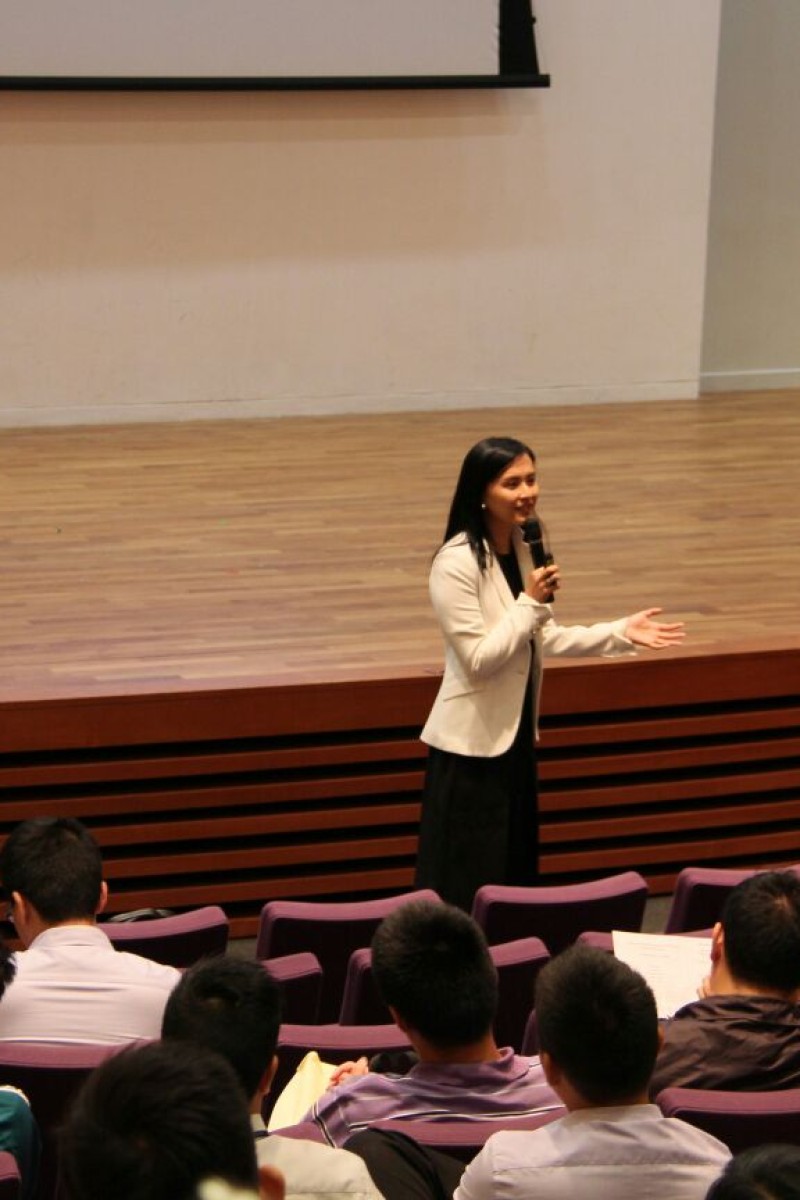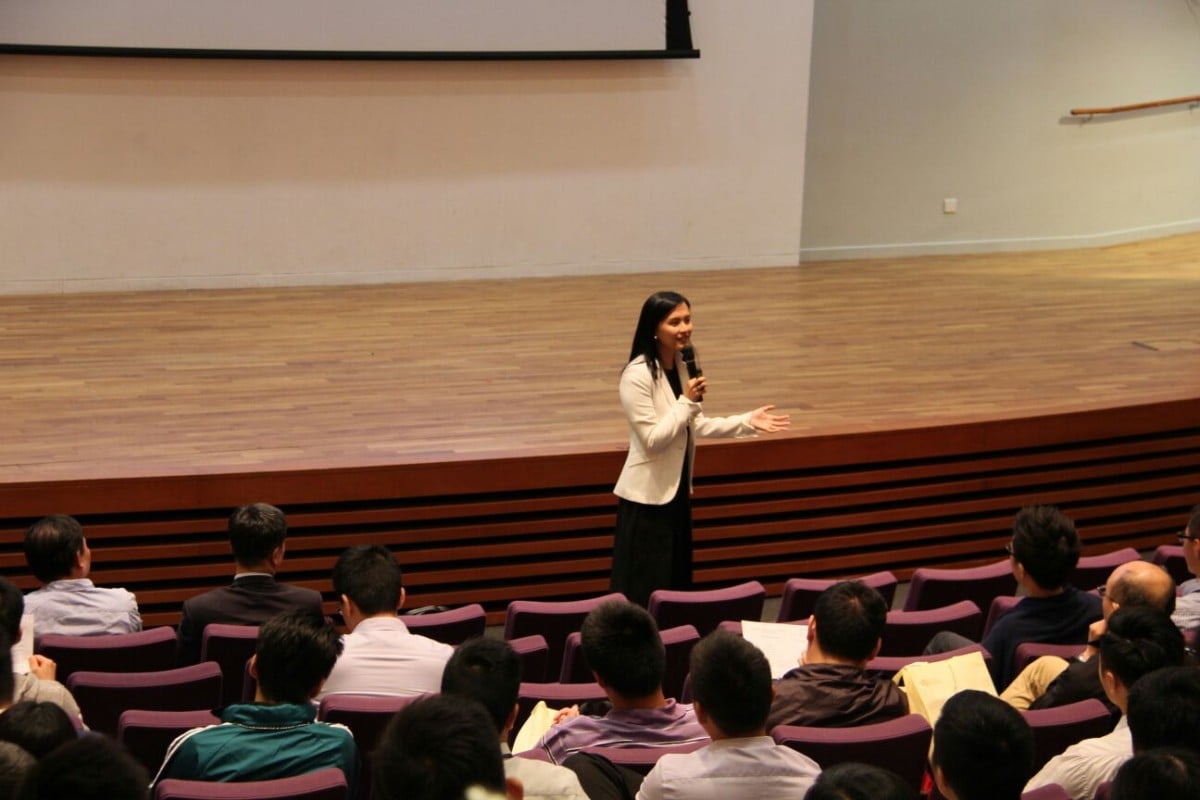
Working in special needs education requires practical experience and genuine interest
Sponsored Feature
 Dr Kean Poon offers training to Hong Kong Police Force on handling teenagers with special needs.
Dr Kean Poon offers training to Hong Kong Police Force on handling teenagers with special needs.From a young age, Dr Kean Poon, Assistant Professor in the Department of Special Education and Counselling at The Education University of Hong Kong (EdUHK), enjoyed helping others.
While still in primary school, she did volunteer work with physically handicapped children through the Red Cross, and her efforts were even featured in a one-hour RTHK documentary. And in her current role, she can draw on that kind of real-life experience in teaching the Bachelor of Arts in Special Education (BA(SE)).
Notably, the programme has a practicum component, giving students the opportunity to learn through hands-on experience, something which sets it apart.
The importance of play-based learning in early childhood education
On the path to becoming an educational psychologist, Dr Poon did her own practicum with the Education Bureau. That presented the chance to work for students with mild intellectual disabilities who were either in special schools or in the local education system.
She was also part of a crisis team dealing with students who had a parent or parents diagnosed with a mental illness, who suffered from fetal alcohol syndrome, or who were in foster care.
In addition, Dr Poon worked with school teachers to identify the strengths and weaknesses of each child. Some colleagues felt identifying weaknesses was the way to helping improvement. But overall, she found that encouraging students to develop their strengths made them more confident and led to better progress.
Later, when doing research at a centre for juvenile delinquents in Tuen Mun, she found that many of those diagnosed with conditions like ADHD, autism or dyslexia were in fact affected by more than one condition. Inevitably, this caused her to wonder how things might have turned out differently if the children involved had received the necessary assistance earlier in life and been taught to build on their strengths.
During her career, Dr Poon has also paid particular attention to the subject of bullying and why it occurs.
“There is a power imbalance and the one with more power usually bullies others,” she says.
Her research has shown that some victims actually follow a pattern categorised as “high risk”. They have difficulty appraising situations as risky and, therefore, don’t avoid them. In contrast, bullies are adept at assessing when a situation is low-risk and then take such opportunities to pick on others.
Dr Poon has dealt with all kinds of complex cases. One involved a pregnant 14-year-old at a juvenile detention centre. The girl was assessed as having a low IQ, social issues, and being unable to tell right from wrong. She depended on others for direction, and her gangster boyfriend – the father of her unborn child – had convinced her to help in holding someone hostage. The boyfriend had also told her that, if arrested for the crime, she would not go to jail because she was pregnant. She believed him, but unfortunately ended up in handcuffs and in detention when she gave birth.
In this situation, Dr Poon felt a number of things could have helped the girl. One was early identification of her conditions. Another was better support for the girl and her family. And a third was effective training to help her tell right from wrong.
From studying to working at EdUHK
In another case, Dr Poon was asked to assist a seven-year-old girl in Primary 2 who would go to the toilet for an hour at a time. After meeting the girl’s father, who was often away from Hong Kong, he finally revealed that his wife had OCD (obsessive-compulsive disorder). It turned out he was unaware or perhaps unwilling to recognise that events at home were affecting the girl in other aspects of her life.
Dr Poon believes she has benefited greatly from taking the time to find her areas of interest and not trying to rush ahead in her career.
“A firm academic grounding is important to be able to help those with developmental and learning disabilities and special needs,” she says. “At EdUHK, we offer an immersive learning experience in special education. Our teaching staff are knowledgeable about theory, as well as skilled practitioners in real-life situations. Our programme offers students a good foundation with plenty of practical experience, allowing them to enter the workforce directly or go on to further education.”